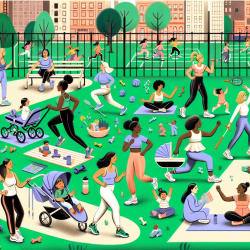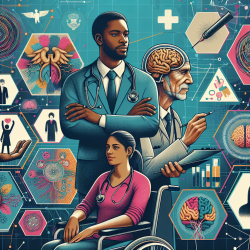Introduction
Physical activity during the postpartum period is crucial for new mothers, not only for physical health but also for mental well-being. However, many women face challenges that prevent them from engaging in regular exercise. A recent study titled Women’s Experiences Regarding Physical Activity during the Postpartum Period: A Feminist Poststructuralist Study sheds light on the social and institutional factors that influence postpartum physical activity.
Understanding the Study
The study, conducted in Nova Scotia, involved in-depth interviews with six postpartum mothers. Through a feminist poststructuralist lens, the researchers identified key themes that affect postpartum physical activity: socialization, social support, mental and emotional health, and role modeling for children. These themes highlight the complex interplay of personal, social, and institutional factors that shape postpartum experiences.
Key Findings and Implications
- Socialization: Many mothers valued social interactions during physical activity to combat feelings of isolation. Practitioners can encourage group exercises or community events to facilitate socialization.
- Social Support: Emotional and practical support from partners, family, or community is crucial. Practitioners should advocate for support networks and resources that assist mothers in balancing childcare and self-care.
- Mental and Emotional Health: Exercise is seen as a way to enhance mental well-being. Practitioners should emphasize the mental health benefits of postpartum physical activity and provide resources for mothers to engage in enjoyable activities.
- Role Modeling: Mothers view themselves as role models for their children. Practitioners can encourage mothers to engage in physical activities that they can later share with their children, fostering healthy habits from an early age.
Encouraging Further Research
While this study provides valuable insights, there is a need for further research to explore diverse cultural perspectives and the impact of technological tools like fitness apps on postpartum physical activity. Practitioners should stay informed about new findings and incorporate them into their practice to better support postpartum women.
Conclusion
Postpartum physical activity is influenced by a variety of factors, including social norms and support systems. By understanding these influences, practitioners can better support new mothers in engaging in physical activity, ultimately improving their mental and physical health.
To read the original research paper, please follow this link: Women’s Experiences Regarding Physical Activity during the Postpartum Period: A Feminist Poststructuralist Study










